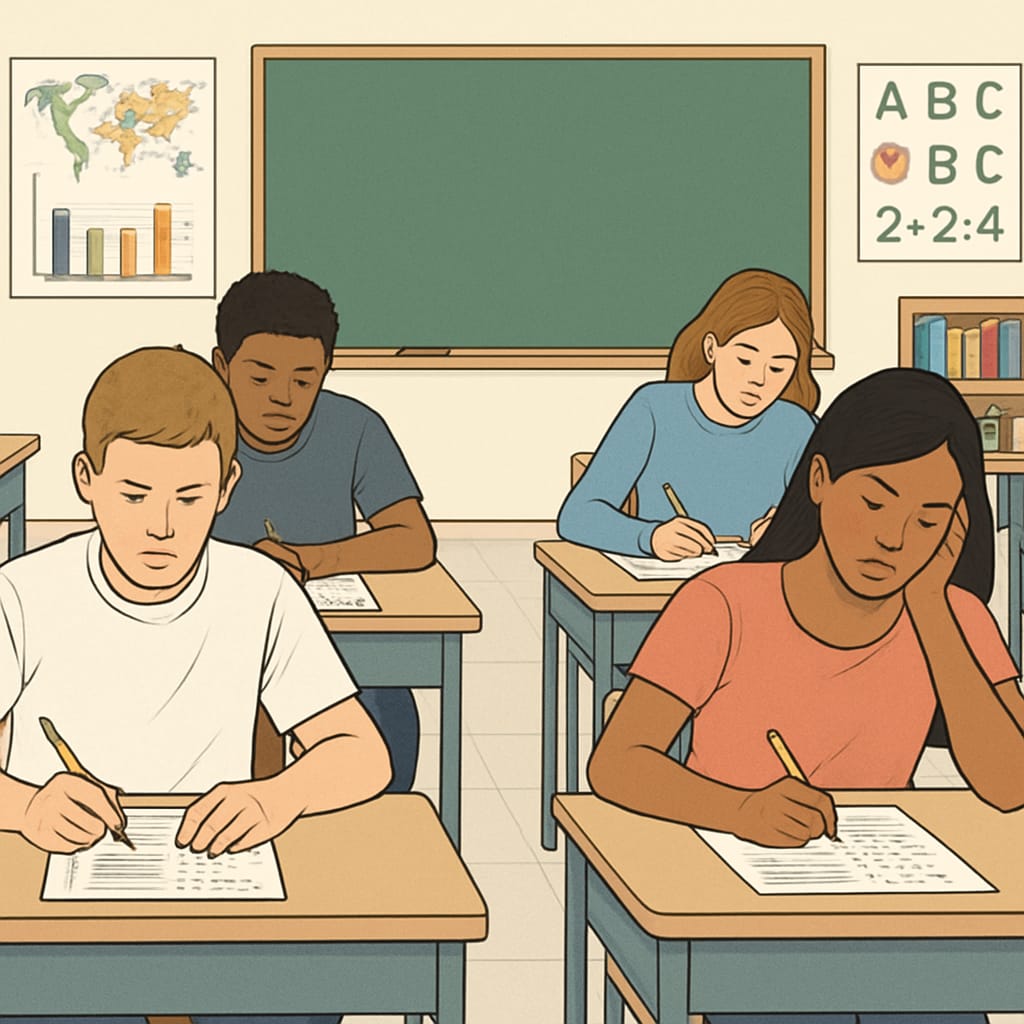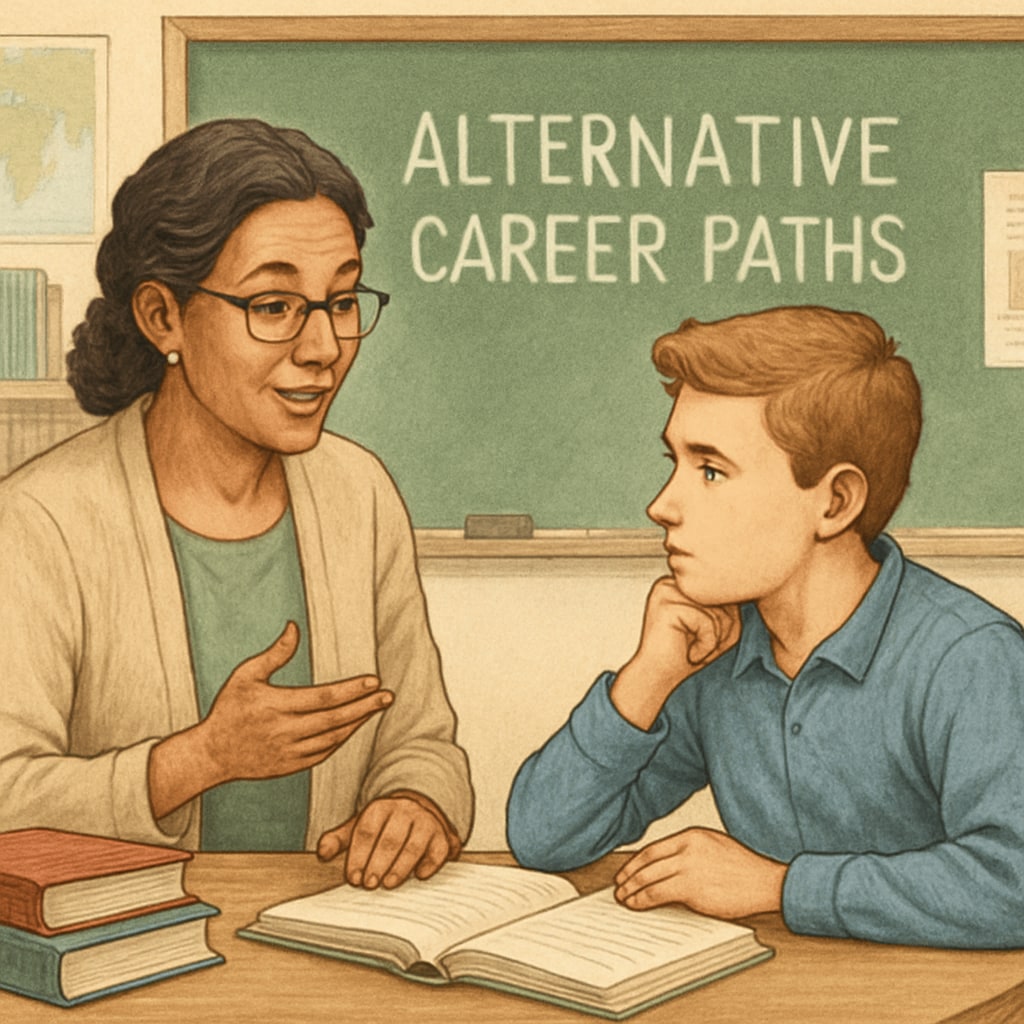For many students, GCSE results can feel like the defining moment of their academic journey, shaping perceptions of their future potential. Conversations around GCSE results, academic anxiety, and career prospects are increasingly commonplace, with students often feeling immense pressure to perform within narrow academic parameters. However, is it time to challenge the traditional metrics of success in K12 education? This article explores the impact of GCSE outcomes on students’ futures, highlights alternative pathways to success, and provides strategies for overcoming academic setbacks.
Are GCSE Results the Sole Indicator of Academic and Career Success?
GCSE results undoubtedly play a significant role in shaping students’ academic and career trajectories. High grades can be crucial for accessing A-Level programs or vocational qualifications, which in turn open doors to universities and future job opportunities. However, equating exam performance with long-term potential oversimplifies the complexities of individual growth and development.
For example, research has found that soft skills like resilience, creativity, and emotional intelligence—often overlooked in standardized testing—are equally, if not more, critical for career success. According to a Wikipedia article on soft skills, employers increasingly value interpersonal and problem-solving abilities, which are not directly measured by exams.
Furthermore, academic setbacks can sometimes act as catalysts for personal growth. There are countless examples of individuals who failed to meet traditional academic benchmarks but went on to excel in entrepreneurship, the arts, or other non-linear career paths. These examples challenge the notion that GCSE results are the ultimate determinant of one’s future.

Managing Academic Anxiety and Redefining Success
The pressure to achieve top grades can lead to significant levels of academic anxiety and stress among students. A report from the National Education Union highlights that exam pressure has contributed to a rise in mental health concerns among young people. For parents and educators, it is essential to shift the narrative around success to reduce this undue burden.
- Fostering a Growth Mindset: Encourage students to view challenges as opportunities to learn and grow. A growth mindset can help them see setbacks as temporary rather than permanent roadblocks.
- Exploring Alternative Paths: Vocational training, apprenticeships, and creative industries offer viable career options that do not rely solely on GCSE scores. For example, the UK’s apprenticeship programs provide hands-on experience and qualifications tailored to industry needs.
- Promoting Emotional Wellbeing: Schools and parents should prioritize mental health support, offering counseling services and stress management workshops to help students navigate academic pressures.
In addition, educators can adopt more holistic assessment methods that emphasize diverse strengths. Portfolio-based evaluations, for instance, allow students to showcase their creative and technical skills in ways that standardized tests may not capture.

Looking Beyond the Classroom: Lifelong Learning and Adaptability
While GCSEs are an important milestone, the reality of the modern workforce is that lifelong learning and adaptability often matter more. Rapid advancements in technology, such as artificial intelligence, continue to reshape industries, demanding new skills and competencies. For students who may not excel in traditional exams, this presents an opportunity to thrive through continuous personal and professional development.
As noted by Britannica’s article on education, the concept of learning is evolving beyond formal institutions to include online courses, certifications, and self-directed studies. Platforms like Coursera and LinkedIn Learning offer affordable, flexible options for acquiring in-demand skills, ensuring that education remains accessible even outside a classroom setting.
Therefore, parents, educators, and policymakers must work together to emphasize the value of lifelong learning. By instilling curiosity and adaptability, students can remain open to new opportunities, regardless of their GCSE performance.
Ultimately, while exam results are important, they should not define a student’s worth or potential. Redefining success in education requires a cultural shift that values diverse talents and pathways, ensuring that every learner has the tools and confidence to thrive in their unique journey.
Readability guidance: Use short paragraphs and lists to summarize key points. Ensure a balanced mix of transition words for flow (e.g., however, therefore, in addition). Avoid overuse of passive voice or long sentences.


